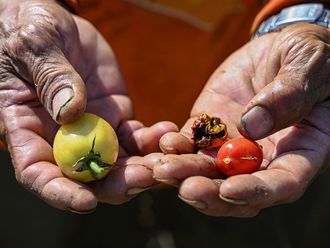Manila: Soldiers will be deployed in the Philippine capital to maintain order amid rising tensions over a water shortage that is affecting millions of people, the government said.
Public Works Secretary Rogelio Singson said the troops would be required to protect trucks as they deliver water to areas of Manila where the taps have run dry following a months-long drought.
"We have asked for warm bodies (from the armed forces) to put order to those water stations and water rationing areas," Singson told reporters.
He stressed there had been no rioting yet, but people were starting to become agitated.
"We have received reports of people jumping queues, others throwing their weight around and so on, so we just need to make sure that there is order in those water rationing areas," Singson said.
He said the soldiers would also have to guard city workers as they cut off water to people who had illegally tapped into pipes.
Large areas of Manila were submerged just 10 months ago after tropical storm Ketsana brought the worst floods to the capital in a generation, killing 464 people.
But drought in the first half of the year has left the main dam that supplies Manila at critically low levels, and weather forecasters predict normal rainfall will resume only in September.
Singson said human error was also to blame for the shortage.
He said water from the dam had been misused for electricity generation this year even when supply shortages were becoming a concern, while years of neglect in not building more dams was a longer-term issue.
Singson said at least three million people, or a quarter of Manila's population, have in recent weeks had their supplies cut off for varying times each day.
Of these, 1.12 million have been severely affected - defined by having water for less than 12 hours a day and requiring supplies to be trucked in.
Singson did not say how many soldiers would be used or when the troops would be deployed.
The last time soldiers deployed in force in Manila was during the global food crisis in 2008, when the military provided armed escorts to government workers as they gave rice to the slums.












